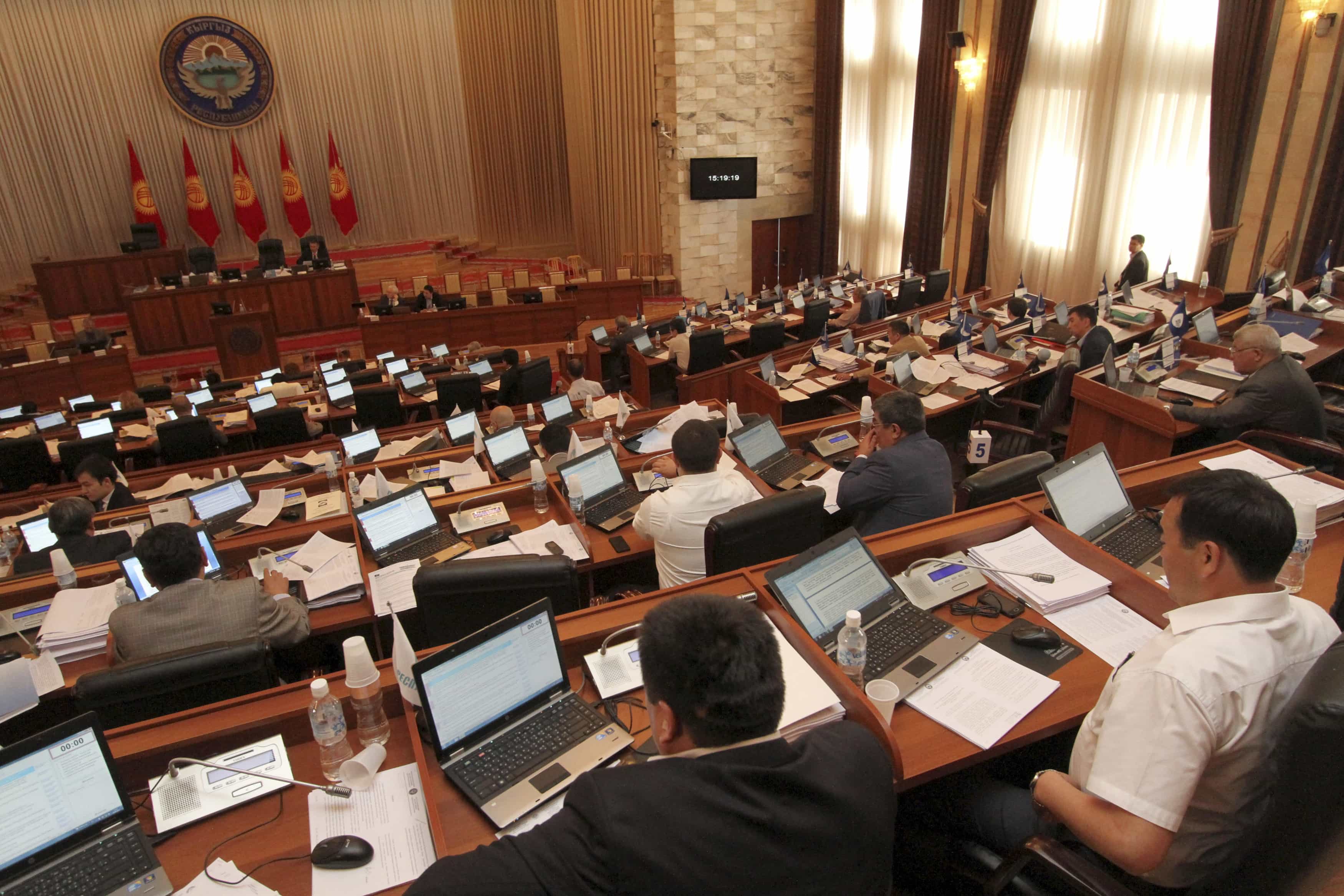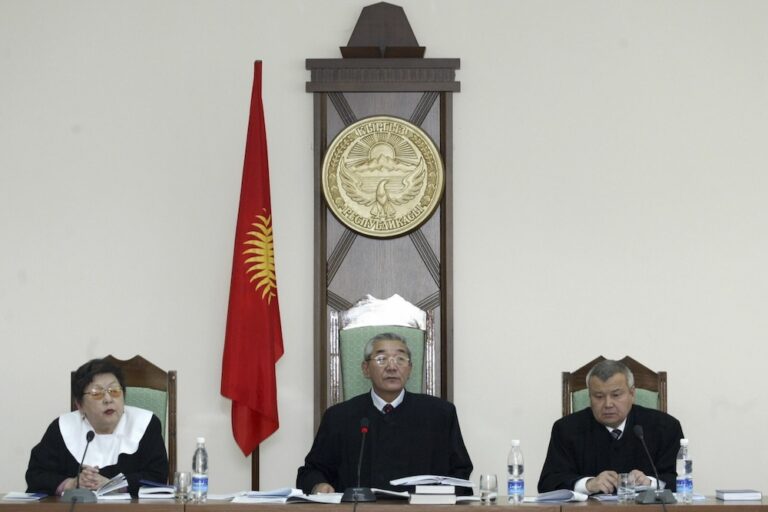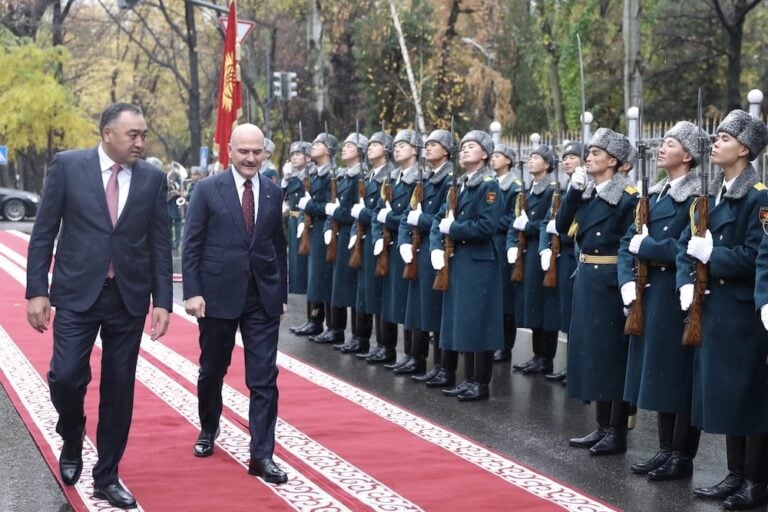A draft "foreign agents" law would require domestic NGOs in Kyrgyzstan that receive foreign funding and engage in vaguely worded "political activities" to register as "foreign agents."
Parliament should reject restrictive draft laws that would endanger freedom of association and expression in Kyrgyzstan, Human Rights Watch said on 5 December 2013. A draft “foreign agents” law would require domestic nongovernmental organizations in Kyrgyzstan that receive foreign funding and engage in vaguely worded “political activities” to register as “foreign agents.”
On November 27, 2013, parliament rejected another restrictive bill – a draft “treason law” that would have unduly tightened controls over citizen groups and activism. However, one of the bill’s sponsors has filed a complaint of procedural violations, so the bill could be presented for a re-vote. The bill would amend the country’s criminal code, broadening the definition of treason to include routine nongovernmental activities such as international advocacy or briefing foreign counterparts.
“By rejecting the ‘treason law’ amendments, parliament recognized how important vibrant independent groups are for Kyrgyzstan,” said Mihra Rittmann, Central Asia researcher at Human Rights Watch. “Kyrgyzstan’s Members of Parliament should stick to the positive precedent they set and reject the ‘foreign agents’ law and any further attempt to adopt the ‘treason law.’”
Both the rejected “treason law” and the draft “foreign agents” law, which has not yet come before parliament, borrow heavily from similar legislation adopted in 2012 in Russia. Both have been used in Russia over the last 18 months to crack down on independent groups there.
The draft “foreign agents” law – like Russia’s – appears aimed at restricting and curtailing the activities of nongovernmental organizations and others working on a wide range of issues, including human rights, Human Rights Watch said. Intergovernmental and international bodies have already spoken out against the adoption of such a law in Kyrgyzstan.
The draft “foreign agents” law would create criminal liability for the leaders of nongovernmental organizations “whose work incites citizens to refuse to fulfill their civic duties or commit other unlawful acts.” This overbroad and vague formulation could have the effect of criminalizing any type of civil disobedience, even moderate forms, according to the October 16 joint interim opinion by the Organization of Security and Cooperation in Europe’s Office for Democratic Institutions and Human Rights and the Venice Commission, an advisory body of the Council of Europe.
The law would also impose additional burdensome reporting requirements on nongovernmental organizations and could lead to a public perception that nongovernmental groups are “foreign spies.” It would also allow authorities to suspend nongovernmental organizations that have not registered as “foreign agents” for up to six months without a court order.
During a visit to Brussels in September, President Almazbek Atambaev told journalists that Kyrgyzstan has no need for a “foreign agents” law. However, on November 19, President Atambaev evaded a question about whether he thought nongovernmental groups that receive foreign funding should have to register as “foreign agents,” saying, “Let Parliament first consider the draft law, and then let’s see what happens.”
The draft “foreign agents” law contradicts Kyrgyzstan’s international human rights obligations to protect freedom of association and expression, and the law’s definition of political activities is so broad that it could include any organized activity relating to public life, Human Rights Watch said.
At a public meeting on the draft “foreign agents” law on November 18, representatives of the United Nations Office of the High Commissioner for Human Rights, Organization for Security and Co-operation in Europe, and local and international human rights groups spoke out against the adoption of the “foreign agents” law.
On November 19, Kyrgyzstan’s Human Rights Ombudsman issued a statement saying, “The law [would] seriously limit and paralyze the work of many nongovernmental organizations, in particular, those that work on the promotion and protection of human rights.”
Kyrgyzstan’s international partners should urge the government and parliament to reject the draft law on “foreign agents” and ensure that independent groups in Kyrgyzstan are able to continue their important work, Human Rights Watch said.



